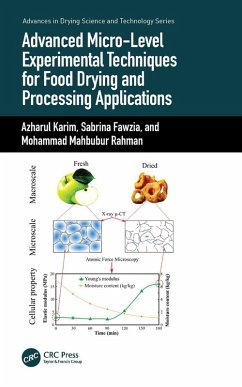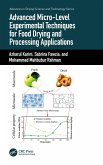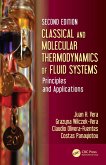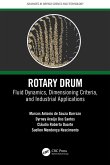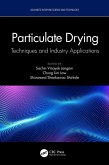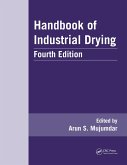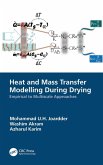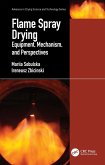Azharul Karim, Sabrina Fawzia, Mohammad Mahbubur Rahman
Advanced Micro-Level Experimental Techniques for Food Drying and Processing Applications (eBook, PDF)
56,95 €
56,95 €
inkl. MwSt.
Sofort per Download lieferbar

28 °P sammeln
56,95 €
Als Download kaufen

56,95 €
inkl. MwSt.
Sofort per Download lieferbar

28 °P sammeln
Jetzt verschenken
Alle Infos zum eBook verschenken
56,95 €
inkl. MwSt.
Sofort per Download lieferbar
Alle Infos zum eBook verschenken

28 °P sammeln
Azharul Karim, Sabrina Fawzia, Mohammad Mahbubur Rahman
Advanced Micro-Level Experimental Techniques for Food Drying and Processing Applications (eBook, PDF)
- Format: PDF
- Merkliste
- Auf die Merkliste
- Bewerten Bewerten
- Teilen
- Produkt teilen
- Produkterinnerung
- Produkterinnerung

Bitte loggen Sie sich zunächst in Ihr Kundenkonto ein oder registrieren Sie sich bei
bücher.de, um das eBook-Abo tolino select nutzen zu können.
Hier können Sie sich einloggen
Hier können Sie sich einloggen
Sie sind bereits eingeloggt. Klicken Sie auf 2. tolino select Abo, um fortzufahren.

Bitte loggen Sie sich zunächst in Ihr Kundenkonto ein oder registrieren Sie sich bei bücher.de, um das eBook-Abo tolino select nutzen zu können.
This book details developments in advanced technology to explore micro-level structural changes during food processing. It is based on the authors' comprehensive knowledge and application of microimaging methods in thermal processing.
- Geräte: PC
- mit Kopierschutz
- eBook Hilfe
Andere Kunden interessierten sich auch für
![Advanced Micro-Level Experimental Techniques for Food Drying and Processing Applications (eBook, ePUB) Advanced Micro-Level Experimental Techniques for Food Drying and Processing Applications (eBook, ePUB)]() Azharul KarimAdvanced Micro-Level Experimental Techniques for Food Drying and Processing Applications (eBook, ePUB)56,95 €
Azharul KarimAdvanced Micro-Level Experimental Techniques for Food Drying and Processing Applications (eBook, ePUB)56,95 €![Classical and Molecular Thermodynamics of Fluid Systems (eBook, PDF) Classical and Molecular Thermodynamics of Fluid Systems (eBook, PDF)]() Juan H. VeraClassical and Molecular Thermodynamics of Fluid Systems (eBook, PDF)54,95 €
Juan H. VeraClassical and Molecular Thermodynamics of Fluid Systems (eBook, PDF)54,95 €![Rotary Drum (eBook, PDF) Rotary Drum (eBook, PDF)]() Marcos Antonio de Souza BarrozoRotary Drum (eBook, PDF)47,95 €
Marcos Antonio de Souza BarrozoRotary Drum (eBook, PDF)47,95 €![Particulate Drying (eBook, PDF) Particulate Drying (eBook, PDF)]() Particulate Drying (eBook, PDF)47,95 €
Particulate Drying (eBook, PDF)47,95 €![Handbook of Industrial Drying (eBook, PDF) Handbook of Industrial Drying (eBook, PDF)]() Handbook of Industrial Drying (eBook, PDF)436,95 €
Handbook of Industrial Drying (eBook, PDF)436,95 €![Heat and Mass Transfer Modelling During Drying (eBook, PDF) Heat and Mass Transfer Modelling During Drying (eBook, PDF)]() Mohammad U. H. JoardderHeat and Mass Transfer Modelling During Drying (eBook, PDF)71,95 €
Mohammad U. H. JoardderHeat and Mass Transfer Modelling During Drying (eBook, PDF)71,95 €![Flame Spray Drying (eBook, PDF) Flame Spray Drying (eBook, PDF)]() Mariia SobulskaFlame Spray Drying (eBook, PDF)74,95 €
Mariia SobulskaFlame Spray Drying (eBook, PDF)74,95 €-
-
-
This book details developments in advanced technology to explore micro-level structural changes during food processing. It is based on the authors' comprehensive knowledge and application of microimaging methods in thermal processing.
Hinweis: Dieser Artikel kann nur an eine deutsche Lieferadresse ausgeliefert werden.
Dieser Download kann aus rechtlichen Gründen nur mit Rechnungsadresse in A, B, BG, CY, CZ, D, DK, EW, E, FIN, F, GR, HR, H, IRL, I, LT, L, LR, M, NL, PL, P, R, S, SLO, SK ausgeliefert werden.
Hinweis: Dieser Artikel kann nur an eine deutsche Lieferadresse ausgeliefert werden.
Produktdetails
- Produktdetails
- Verlag: Taylor & Francis eBooks
- Seitenzahl: 108
- Erscheinungstermin: 30. Dezember 2021
- Englisch
- ISBN-13: 9781000482256
- Artikelnr.: 63128943
- Verlag: Taylor & Francis eBooks
- Seitenzahl: 108
- Erscheinungstermin: 30. Dezember 2021
- Englisch
- ISBN-13: 9781000482256
- Artikelnr.: 63128943
- Herstellerkennzeichnung Die Herstellerinformationen sind derzeit nicht verfügbar.
Dr Azharul Karim is currently working as an Associate Professor in the school of Mechanical, Medical and Process Engineering, Queensland University of Technology, Australia. He received his PhD degree from Melbourne University in 2007. Dr Karim has authored over 200+ peer-reviewed articles, including 110 high quality journal papers, 13 peer-reviewed book chapters, and four books. His papers have attracted about 5000+ citations with h-index 38. His research has very high impact worldwide as demonstrated by his overall field weighted citation index (FWCI) of 2.10. He is editor/board member of six reputed journals including Drying Technology and Nature Scientific Reports and supervisor of 26 past and current PhD students. He has been keynote/distinguished speaker at scores of international conferences and invited/keynote speaker in seminars in many reputed universities worldwide. He has won multiple international awards for his outstanding contributions in multidisciplinary fields. His research is directed towards solving acute food industry problems by advanced multiscale and multiphase food drying models of cellular water using theoretical/computational and experimental methodologies. He is the recipient numerous national and international competitive grants amounting $3.15 million.
Dr Sabrina Fawzia is currently working as a senior lecturer in civil engineering at Queensland University of Technology, Australia. She is a structural engineering expert and research focuses on development of the high performance structural members and structural strengthening/ retrofitting by using Fiber reinforced polymer (FRP) material technology. Through her scholarly, innovative, high quality research she has established her national and international standing. Dr Fawzia's excellence in research has been demonstrated by high quality refereed publications (98 publications: 1795 citations, h-index=21 Google Scholar), two ARC LIEF grants ($1.9M), one international grant ($80K), five QUT internal grants ($79K), QUT's SEF Award for Excellence in postgraduate research supervision, ten PhD's and three Master's by research completions, being invited by reputed universities for seminars and the establishment of national and international collaborative research relationships. Her recent research interest includes microstructural analysis of for structures.
Dr. Mohammad Mahbubur Rahman received his Ph.D. degree from Queensland University of Technology (QUT), Australia, in 2018. Currently, he is working as a visiting research fellow at the Queensland University of Technology (QUT). He received his BSc Degree in Electrical and Electronic Engineering (EEE) from the Chittagong University of Engineering and Technology (CUET), Bangladesh, in 2010 and Master of Engineering Science from the University of Malaya (UM), Malaysia in 2014. His research interest includes mathematical modelling, drying process optimization, and renewable energy.
Dr Sabrina Fawzia is currently working as a senior lecturer in civil engineering at Queensland University of Technology, Australia. She is a structural engineering expert and research focuses on development of the high performance structural members and structural strengthening/ retrofitting by using Fiber reinforced polymer (FRP) material technology. Through her scholarly, innovative, high quality research she has established her national and international standing. Dr Fawzia's excellence in research has been demonstrated by high quality refereed publications (98 publications: 1795 citations, h-index=21 Google Scholar), two ARC LIEF grants ($1.9M), one international grant ($80K), five QUT internal grants ($79K), QUT's SEF Award for Excellence in postgraduate research supervision, ten PhD's and three Master's by research completions, being invited by reputed universities for seminars and the establishment of national and international collaborative research relationships. Her recent research interest includes microstructural analysis of for structures.
Dr. Mohammad Mahbubur Rahman received his Ph.D. degree from Queensland University of Technology (QUT), Australia, in 2018. Currently, he is working as a visiting research fellow at the Queensland University of Technology (QUT). He received his BSc Degree in Electrical and Electronic Engineering (EEE) from the Chittagong University of Engineering and Technology (CUET), Bangladesh, in 2010 and Master of Engineering Science from the University of Malaya (UM), Malaysia in 2014. His research interest includes mathematical modelling, drying process optimization, and renewable energy.
1. Prospect of micro-level investigations in for food processing
application 2. Food microstructure and quality changes in foods during
processing 3. Use of advanced micro imaging method in food processing 4.
Use of atomic force microscopy (AFM) in food processing 5. X-ray
micro-tomography in food processing 6. Nuclear magnetic resonance (NMR) in
food processing application 7. Near Infrared (NIR) Spectroscopy for food
processing application 8. Light Microscopy (LM) in food processing 9.
Neutron Radiography Scattering in food processing
application 2. Food microstructure and quality changes in foods during
processing 3. Use of advanced micro imaging method in food processing 4.
Use of atomic force microscopy (AFM) in food processing 5. X-ray
micro-tomography in food processing 6. Nuclear magnetic resonance (NMR) in
food processing application 7. Near Infrared (NIR) Spectroscopy for food
processing application 8. Light Microscopy (LM) in food processing 9.
Neutron Radiography Scattering in food processing
1. Prospect of micro-level investigations in for food processing
application 2. Food microstructure and quality changes in foods during
processing 3. Use of advanced micro imaging method in food processing 4.
Use of atomic force microscopy (AFM) in food processing 5. X-ray
micro-tomography in food processing 6. Nuclear magnetic resonance (NMR) in
food processing application 7. Near Infrared (NIR) Spectroscopy for food
processing application 8. Light Microscopy (LM) in food processing 9.
Neutron Radiography Scattering in food processing
application 2. Food microstructure and quality changes in foods during
processing 3. Use of advanced micro imaging method in food processing 4.
Use of atomic force microscopy (AFM) in food processing 5. X-ray
micro-tomography in food processing 6. Nuclear magnetic resonance (NMR) in
food processing application 7. Near Infrared (NIR) Spectroscopy for food
processing application 8. Light Microscopy (LM) in food processing 9.
Neutron Radiography Scattering in food processing
